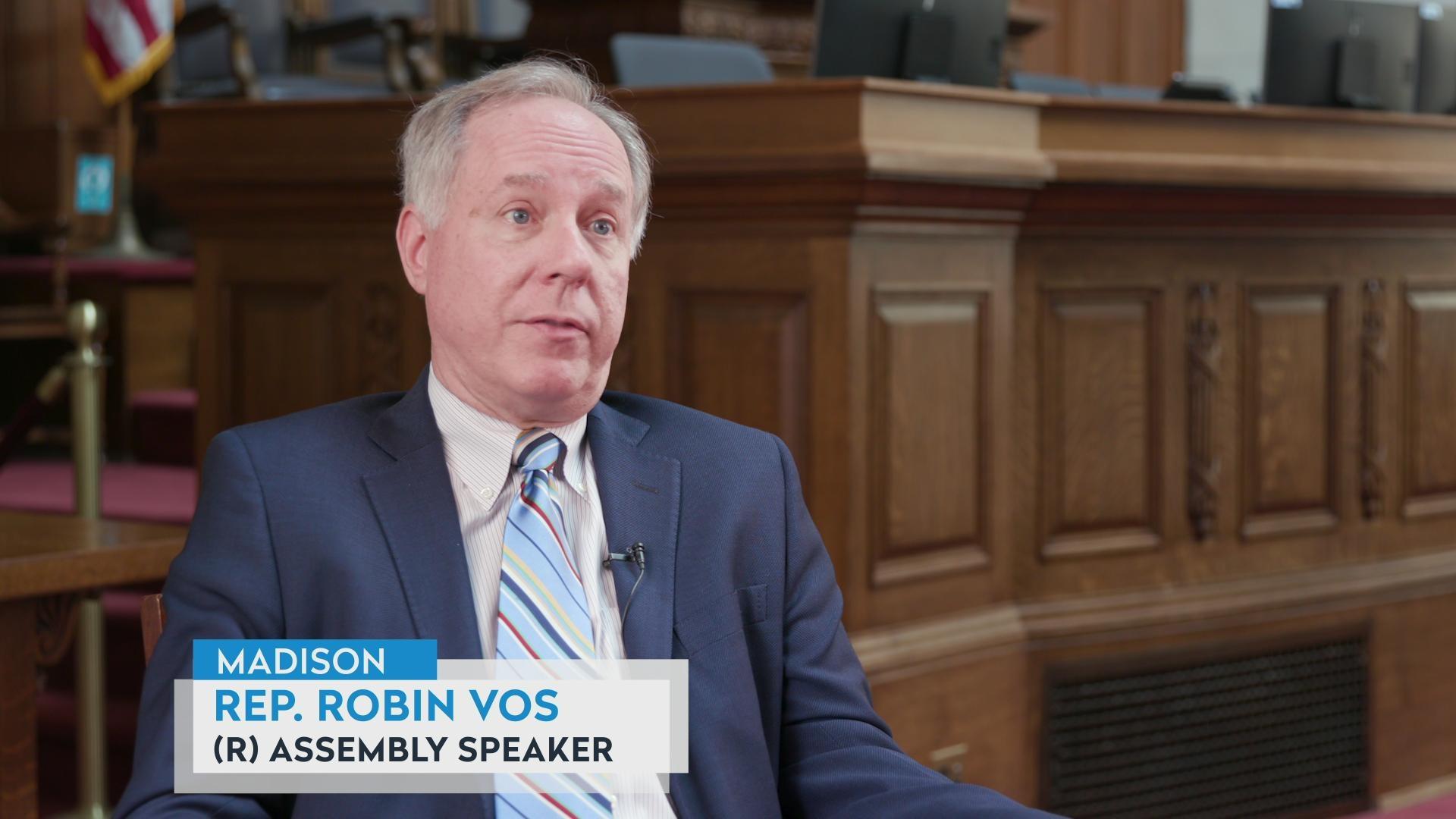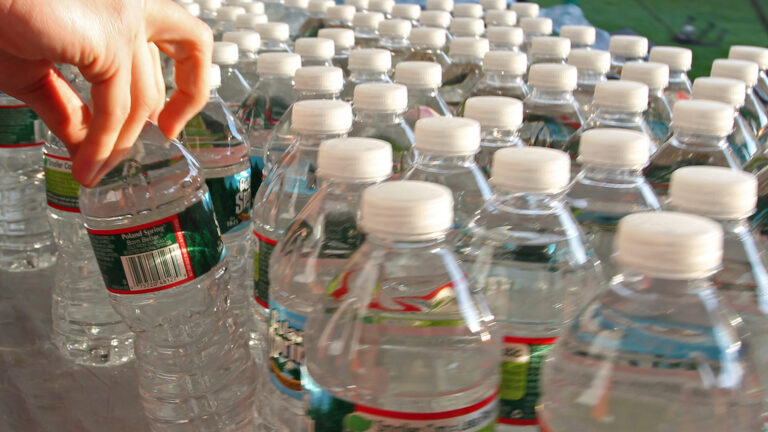Frederica Freyberg:
There were a number of hot button issues in this past election for Native American voters, from frac sand mining in Ho-Chunk lands to the open pit iron ore mine with the Ojibwa ceded territory, and calls for a new casino in Kenosha. The number of Native American voters is growing, and in some tribal communities turnout doubled. Matt Dannenberg is a member of the Bad River Band of Lake Superior Chippewa and an organizer for the Wisconsin League of Conservation Voters. We first spoke with Matt last April and invited him back this week for his insights on the Native American vote. Matt, thanks very much for being here.
Matt Dannenberg:
Thanks for having me back on the show, Frederica.
Frederica Freyberg:
So I'm wondering, where did turnout double and on what issues did that kind of engagement turn?
Matt Dannenberg:
Sure. So you know, we’re facing the 2014 midterm elections, and in general midterm elections have the challenge of a lower turnout. And then when we look at the Native community, there are unique challenges and barriers to voting which the campaign was looking to address. And right off the bat, you know that this campaign came out of the controversial iron ore law that was passed in Wisconsin, a lot of tribal members feeling that their voices were not being heard, that they were not being represented. Also, with the issue of air quality in Ho-Chunk lands and potential runoff from these frac sand mining facilities were playing into voters’ minds. So where turnout doubled, was up near the Red Cliff Tribe. Also, we had a 49% increase in Mole Lake, in that community, as well as in Bad River, so right in the hotbed of where that issue is on voters’ minds.
Frederica Freyberg:
And so when you saw those kinds of numbers, how rewarding was that, given that you have put your work into this Native vote program?
Matt Dannenberg:
I have a tremendous amount of pride in everybody that was a part of the campaign. We had 23 leaders step up in 10 Native communities across Wisconsin. I’m so proud of the work that we did this fall and over the last year to really get out there and talk to voters and increase that turnout.
Frederica Freyberg:
Do you suppose that turnout will persist, given your efforts even if there aren’t these kind of hot button issues?
Matt Dannenberg:
You know, most definitely. I think– I was just addressing the historic lower turnout, and what our main goal is to actually change that from a culture where folks don’t trust the government per se, there’s that historic distrust, a lack of faith maybe that their voice is being heard, into a culture of voting is something that we do every time. It’s our duty. It’s important and it’s critical to supporting and building our communities.
Frederica Freyberg:
Now, the last time we spoke, again, you told us that the Menominee Nation had a 90% turnout in 2012. This time the Menominee have a big issue before them because they want this casino in Kenosha. Is it that kind of intersection between tribal interests and state interests that does tend, again, to be an important mover of the vote?
Matt Dannenberg:
Yeah, definitely. You know, when it comes down to people’s livelihoods, as we’re talking to voters at the doors, a number of issues came up, the economy. Education and health care were also major issues, and then also the environment. So these issues really drove voters to turn out, and we saw a number of increase in Menominee Nation again this election cycle.
Frederica Freyberg:
Now, your Native vote program again has three prongs, increasing turnout, so we can give that a check, right?
Matt Dannenberg:
Yup.
Frederica Freyberg:
Building leaders. You’ve told us we can give that one a check. And reducing barriers to voting, but you’re still working on that, as you suggested earlier in this discussion. What was the experience in November in terms of these barriers to voting?
Matt Dannenberg:
Yeah. And that’s another area where I’m really proud of the program. You know, so I talked about the historical distrust and actually the idea that many Natives feel that voting in state and federal elections is a betrayal to one’s tribal sovereignty. So really having these long, values-based discussions about why these elections are important and why turning out is important was critical. So that barrier was addressed. But also polling locations and access to the ballot box, as well as feeling comfortable while going to vote is something that came up across the state. And so, for instance, in Lac Courte Oreilles there’s a World War II veteran that had a 25-mile commute to the polls, something that was a very difficult issue with transportation. And so she was able to contact someone from our campaign and get a ride to the polls. So her voice was heard, even though it might not have been. Another story, Randy from Menominee Nation was someone who just moved to that community and was unsure if he was– had the right to vote there. And so we were able to get him information he needed to get to be able to have his voice heard.
Frederica Freyberg:
What is that issue about being comfortable once inside the polling place?
Matt Dannenberg:
Yeah. You know, I think it’s an issue of, you know, some of the racial tensions, you know, being frank, that have gone and persisted for generations. Folks just– Some folks were not comfortable because there’s not people that had familiar faces working as poll workers. So that was something we addressed. We actually had people volunteer to work at the polls so folks had familiar faces as they were going in. It became a more comfortable experience. We actually did have a couple of reports for people being asked for their tribal IDs at the polls which we needed to address and make sure that that got reported.
Frederica Freyberg:
What will you be doing toward this program going forward?
Matt Dannenberg:
We want to see the success continue. And really it’s encouraging more– I hope that some of these people that I worked with that stepped up and took leadership roles run for office. They’re the kind of people I’d love to have represent me. That would be really exciting. And also, you know, moving forward, looking at the next legislative session, there’s going to be a lot of these issues that are coming back up, such as local control, the environment, the casino environment and education that a lot of these folks will be getting involved in. Now we have a mechanism for greater participation in that realm as well.
Frederica Freyberg:
Great. Lots to work on. Matt Dannenberg, thanks very much.
Matt Dannenberg:
Thank you.
Search Episodes
News Stories from PBS Wisconsin

Donate to sign up. Activate and sign in to Passport. It's that easy to help PBS Wisconsin serve your community through media that educates, inspires, and entertains.
Make your membership gift today
Only for new users: Activate Passport using your code or email address
Already a member?
Look up my account
Need some help? Go to FAQ or visit PBS Passport Help
Need help accessing PBS Wisconsin anywhere?

Online Access | Platform & Device Access | Cable or Satellite Access | Over-The-Air Access
Visit Access Guide
Need help accessing PBS Wisconsin anywhere?

Visit Our
Live TV Access Guide
Online AccessPlatform & Device Access
Cable or Satellite Access
Over-The-Air Access
Visit Access Guide
 Passport
Passport


















Follow Us